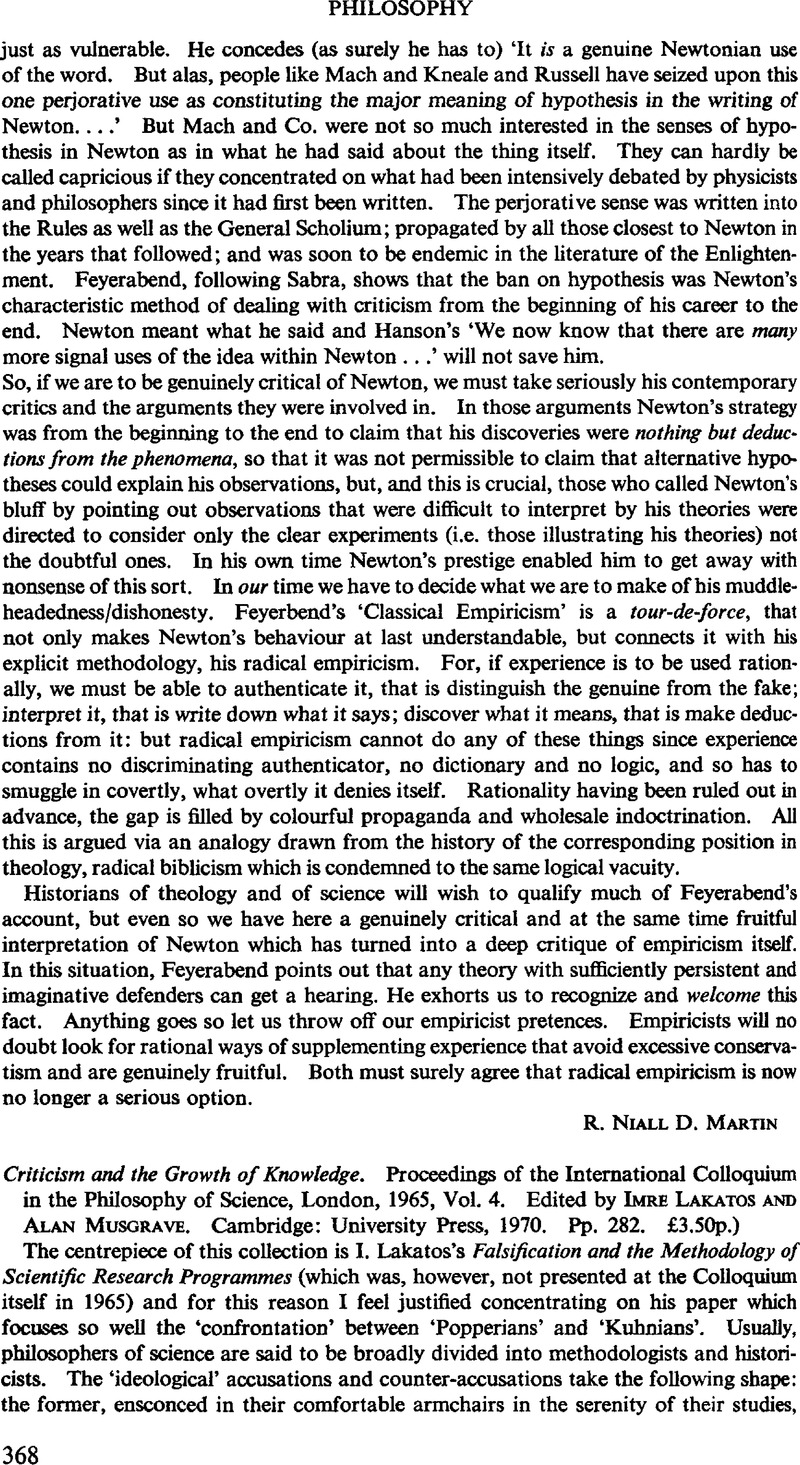No CrossRef data available.
Article contents
Criticism and the Growth of Knowledge. Proceedings of the International Colloquium in the Philosophy of Science, London, 1965, Vol. 4. Edited by Imre Lakatos and Alan Musgrave. Cambridge: University Press, 1970. Pp. 282. £3.5Op.)
Review products
Published online by Cambridge University Press: 25 February 2009
Abstract

- Type
- New Books
- Information
- Copyright
- Copyright © The Royal Institute of Philosophy 1971
References
1 Lakatos points out that the real Popper does pay lip service to the spirit of dogmatism, On page 177, he quotes from Popper [1940], first footnote: ‘the dogmatic attitude of sticking to a theory as long as possible is of considerable significance. Without it we could never find out what is in a theory—we should give the theory up before we had a real opportunity of finding out its strength; and in consequence no theory would ever be able to play its role of bringing order into the world, of preparing us for future events, of drawing our attention to events we should otherwise never observe.' He then comments in his own footnote 3, same page
But these remarks are in prima facie contradiction with some of his remarks in [1934]… and therefore may only be interpreted as signs of a growing awareness by Popper of an undigested anomaly in his own research programme.


